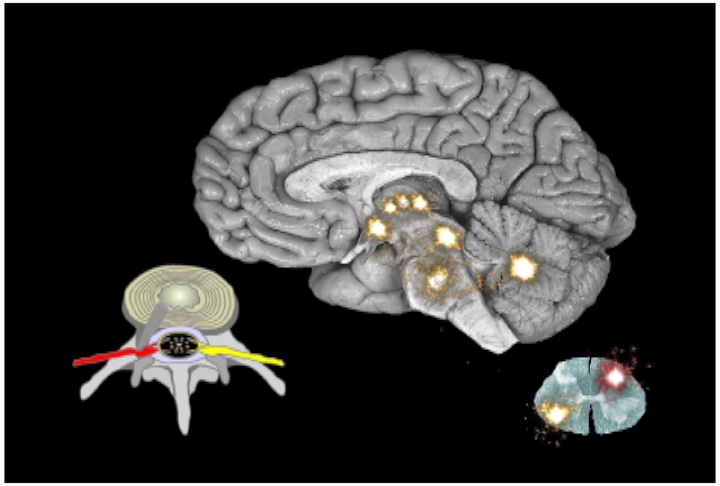
Research
Research is directed toward clinical studies designed to clarify and exploit underlying mechanisms of neuroplasticity in the development and resolution of persistent pain disorders. The overall goal is to explore the relationship between neuroplastic treatment approaches with positive clinical outcomes of pain reduction, improved function and improved quality of life. Studies will bridge the gap of clinical practice and basic science, with a goal of designing techniques and products to help people with persistent pain to develop effective strategies to stay involved in the satisfying activities of life. While transformative neuroplastic approaches to treat pain persistence require motivation, relentlessness and practice, positive outcomes should reward the participant with pain relief, healthier brain function and a decreasing need for conscious intervention, as the brain’s positive adaptivity prevails. Research will focus on practical solutions, naturally occurring somatic processes and recognition of brain-body unity to reverse the maladaptation of persistent pain. While recognizing the importance of the randomized, double-blind, placebo-controlled clinical trial, this approach is not seen as an inherently higher form of evidence than other work in applied science, basic neuroscience, anatomy, physiology, cellular biology, molecular biology and genetics. Hypotheses will be tested using clinical case series, retrospective studies and double blind trials, selecting the best and most accessible method for the information being studied. A great deal of data and ideas have already been published regarding persistent pain in a multitude of disciplines and another direction of this research will be unification of what is often hidden in plain sight.